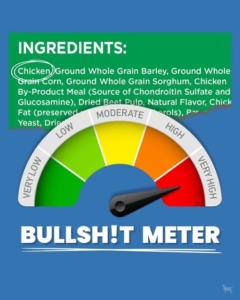
The Importance of Good Nutrition in Dogs
Proper nutrition is the foundation of a healthy, happy, and long life for dogs. Just like humans, dogs require a balanced diet to maintain optimal health, energy levels, and disease resistance. Feeding your dog high-quality food tailored to their age, breed, and health needs can prevent numerous health issues and improve their overall well-being.
Why Nutrition Matters for Dogs
Supports Overall Health & Longevity
A well-balanced diet provides essential nutrients, including proteins, fats, carbohydrates, vitamins, and minerals, which are vital for:
Strong muscles and bones (from protein and calcium)
Healthy skin and coat (from omega-3 and omega-6 fatty acids)
Proper digestion (from fiber and probiotics)
Strong immune system (from antioxidants like vitamins E and C)
Dogs fed a nutritious diet tend to live longer, healthier lives with fewer chronic illnesses.
Prevents Obesity & Related Diseases. Obesity is a growing problem in dogs, leading to serious conditions such as:
Diabetes
Joint pain and arthritis
Heart disease
Reduced lifespan
Feeding the right portions and avoiding excessive treats or low-quality fillers helps maintain a healthy weight.
Enhances Energy & Vitality
High-quality dog food provides sustained energy levels, keeping your pet active and playful. Poor nutrition can lead to lethargy, weakness, and poor performance in working or athletic dogs.
Supports Dental Health
Certain foods and dental chews help reduce plaque and tartar buildup, preventing gum disease and tooth loss. Meaty bones, carrots, and bully sticks are great examples.
Reduces Risk of Allergies & Skin Problems
Many skin and digestive issues in dogs stem from food allergies or sensitivities. Premium dog foods with limited ingredients or novel proteins (like salmon or duck) can help manage allergies and promote a shiny coat.
Aids in Disease Management
Dogs with health conditions like kidney disease, diabetes, or arthritis often require specialized diets. Veterinary-prescribed nutrition can slow disease progression and improve quality of life.
Choosing the Right Food for Your Dog
I strongly believe a fresh food diet is the best way to feed your dog(s). However, this may not be practical for everyone, so kibble might be the only choice. Not all dog kibble is created equal. Here’s what to look for:
High-quality protein (chicken, beef, fish, or lamb as the first ingredient)
Healthy fats (such as fish oil or flaxseed)
Whole grains or digestible carbs (brown rice, sweet potatoes)
No artificial additives (avoid fillers like corn syrup and by-products)
Age-appropriate formulas (puppy, adult, or senior diets)
Consult your veterinarian to determine the best diet for your dog’s specific needs.
Watch out for ingredient splitting. Ingredient splitting is when a manufacturer divides a single low-quality ingredient into multiple subcategories to push it further down the ingredient list. An example would be Corn Gluten meal, ground Yellow corn, and corn bran. All of these are corn, but split out to make it look like there is more in the bag than there is.
Conclusion
Good nutrition is one of the most important factors in keeping your dog healthy and happy. By providing a balanced, high-quality diet, you can prevent disease, maintain an ideal weight, and ensure your furry friend enjoys a long, active life. Always monitor your dog’s health and adjust their diet as needed with professional guidance.
Investing in proper nutrition today means fewer vet bills and more joyful years with your beloved pet tomorrow!
Would you like recommendations on specific dog food brands or supplements? Let me know how I can help further!


